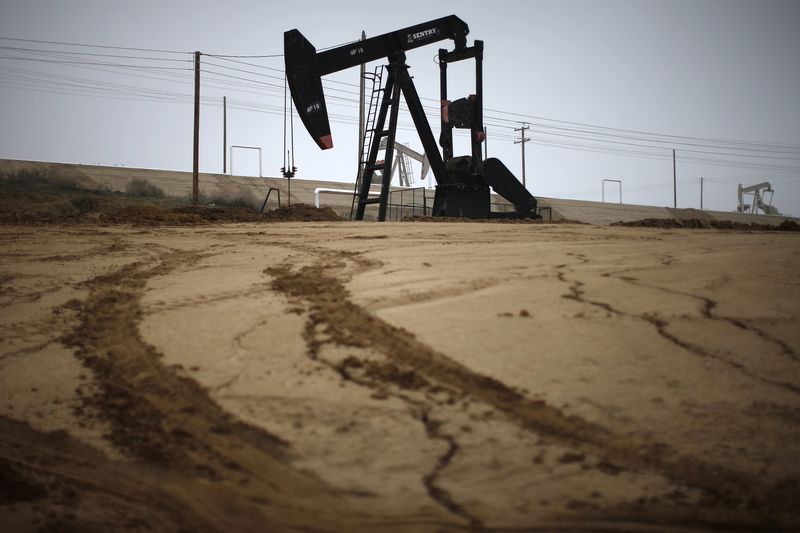* Brent crude oil set for biggest one-month fall since 2008
* Russia, OPEC pump at near-record rates (New throughout, updates prices and market activity)
By Jessica Resnick-Ault and Catherine Ngai
NEW YORK, Dec 21 (Reuters) - Brent oil cratered to its lowest price in more than 11 years on Monday, as demand for heating oil slumped on warmer-than-normal temperatures and traders tested for a bottom.
U.S. crude remained above its 2009 low and settled up a penny a barrel as traders squared positions ahead of the January contract's expiration. The February contract declined and analysts expect stockpiles to build again this week, signaling further oversupply in already glutted market. EIA/S
Concerns about swelling global crude supply and slow demand sparked by economic weakness in China have been recurring themes during this year's rout. Analysts said the market was still testing for a bottom.
"The key in finding the bottom of the market comes in a tightening of the supply side," said Gene McGillian, senior analyst at Tradition Energy in Stamford, Connecticut.
OPEC and Russia will keep producing at high volumes, increasing pressure on U.S. producers to throttle back production, he said.
"I think we're getting ready for another round of capex cuts in North America," he said.
Heating oil futures HOc1 weighed down the crude complex, hitting a new July 2004 low warmer-than-expected temperatures have hit seasonal demand.
"The market is waiting for the next announcement," said Tyche Capital Advisors senior research analyst John Macaluso. "The equity markets are waiting on crude oil, and crude oil is waiting for a bounce before shorts will come back into the market."
Crude short-sellers will be reluctant to return before U.S. crude recovers to $35.50, he said.
Global oil production is running close to record highs. With more barrels poised to enter the market from nations such as Iran and Libya, the price of crude is set for its largest monthly percentage decline in seven years.
Brent's premium over U.S. crude narrowed further after President Barack Obama signed a law on Friday that will lift a 40-year ban on U.S. crude oil exports. urn:newsml:reuters.com:*:nL1N1471KH
U.S. crude futures CLc1 settled up 1 cent at $34.74 a barrel in the last day of trading on the January contract, before declining slightly in post-settlement trading.
Brent futures LCOc1 were down 53 cents at $36.35, falling as much as 2 percent during the session to a low of $36.04, their weakest since July 2004.
Brent has dropped nearly 19 percent this month, its steepest fall since the collapse of failed U.S. bank Lehman Brothers in October 2008.
While consumers have enjoyed lower fuel prices, the world's richest oil exporters have been forced to revalue their currencies, sell off assets and even issue debt for the first time in years as they struggle to repair their finances.
The Organization of Petroleum Exporting Countries, led by Saudi Arabia, shows no signs of wavering from its year-old policy of compensating for lower prices with higher production, even though its poorer members are suffering. urn:newsml:reuters.com:*:nL8N1490JM
Oil market liquidity usually evaporates ahead of the holiday period, meaning that intra-day price moves can become exaggerated. The expiration of the front-month WTI contract on Monday may further exacerbate such activity.
